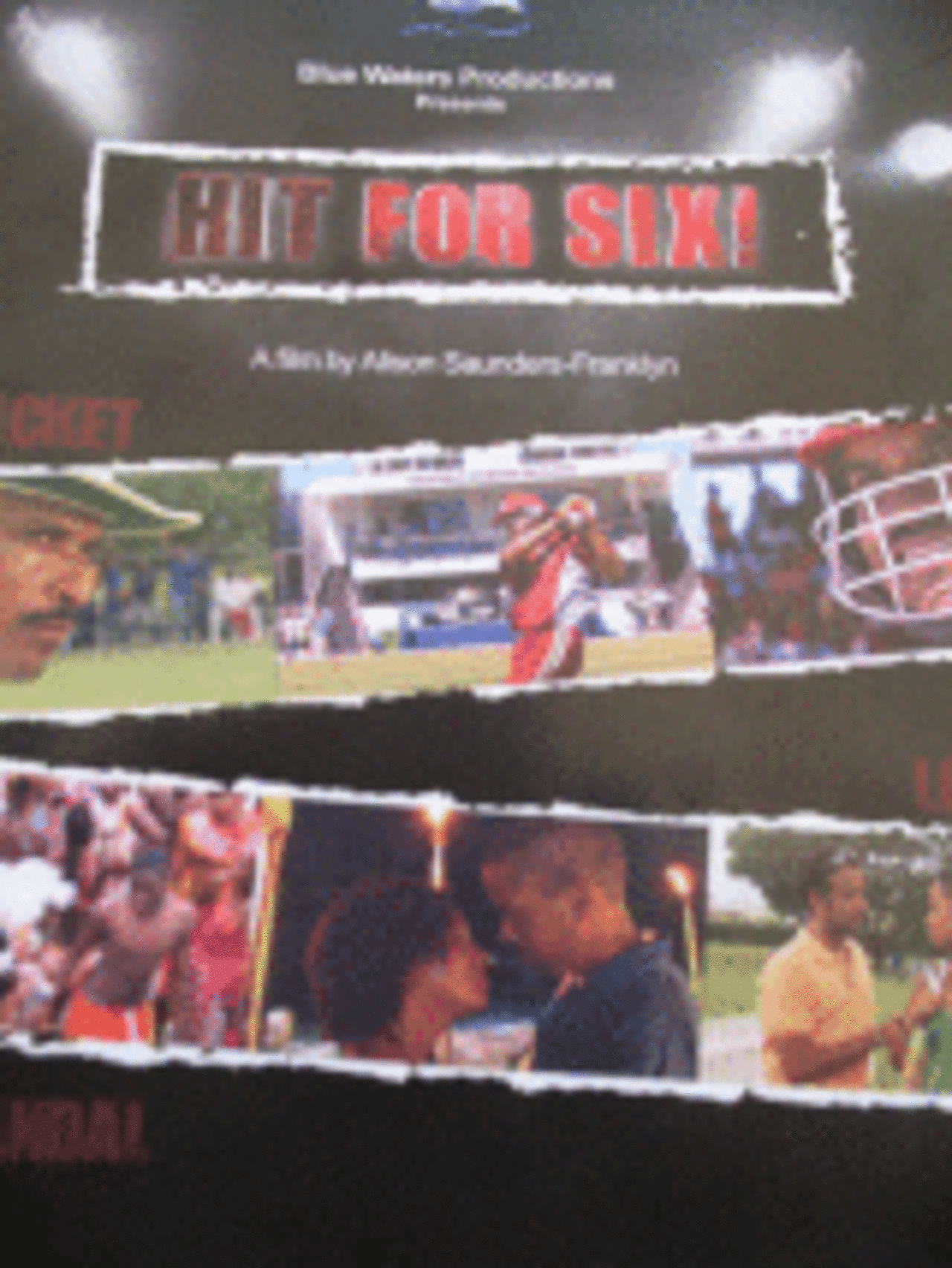<I>Hit for Six</I>
The Barbados film industry is only four years old and it had, till last night, to its credit three feature films, all of which were shot in video format on budgets of less than US$500,000
Andrew McGlashan
25-Feb-2013

ESPNcricinfo Ltd
Last night, I achieved the dubious distinction of walking the red carpet at the international premiere of a feature film in Bermuda shorts, a situation I tried to explain as an attempt to achieve parity with the superior sex by showing a bit of skin. There was no rush of cameras, though, and I slunk off to the far corner to nurse my pineapple juice.
Truth be told, I made a fool of myself. It is no excuse that I thought it was a media-only preview. I didn’t read the invite.
And let me get a bit real too. It was the premiere of a feature film alright, though the ‘international’ part is overstating a bit. The occasion, though, was special: the premiere of Barbados’s first full-length feature film. And it was hardly a surprise that it was on cricket and titled Hit for Six!
The Barbados film industry is only four years old and it had, till last night, to its credit three feature films, all of which were shot in video format on budgets of less than US $500,000. The country has only two proper theatres and the premiere was being held at Olympus Theatre, the country’s sole multiplex with six screens.
Hit for Six was thus a breakthrough for it was filmed on celluloid and cost US $770,000. Written, directed and produced by Alison Saunders-Franklyn, a Barbadian/Trinidadian who has acquired a reputation in corporate and television programming, the film assembled local talents from stage and amateurs.
It held promise because films made with passion, creative honesty and hunger can be extremely rewarding. A few years ago, on the recommendation of a friend, I went to watch the then unknown City of God, a Brazilian film made with little-known actors, and came back spellbound. It went on become a cult film and win an Oscar.
The movie started about 20 minutes behind schedule after we had been entertained by an advertisement for a local cricket fest that played in a loop. A friend accompanying me reckoned it might have played 56 times. Apparently, the wait was for the main actor, Andrew Pilgrim, considered the country’s leading stage actor. Pilgrim was said to have
practiced cricket for three months in preparing for the role of Alex Nelson, a talented but, out-of-favour batsman fighting to regain his place and honour.
The film never went beyond amateurish. It had the feel of a home video, the lead actor looked too old for even a middle-aged cricketer, the plot was too simplistic and full of clichés. It picked up a bit towards the middle when the relationship between Nelson and his father, a former Test player whose career had ended in controversy, and who had, for large part of his life, hadn’t acknowledged Nelson as his son, started to develop. But it wound up towards a predictable end. Honest intentions are not always enough.
Andrew McGlashan is an assistant editor at ESPNcricinfo